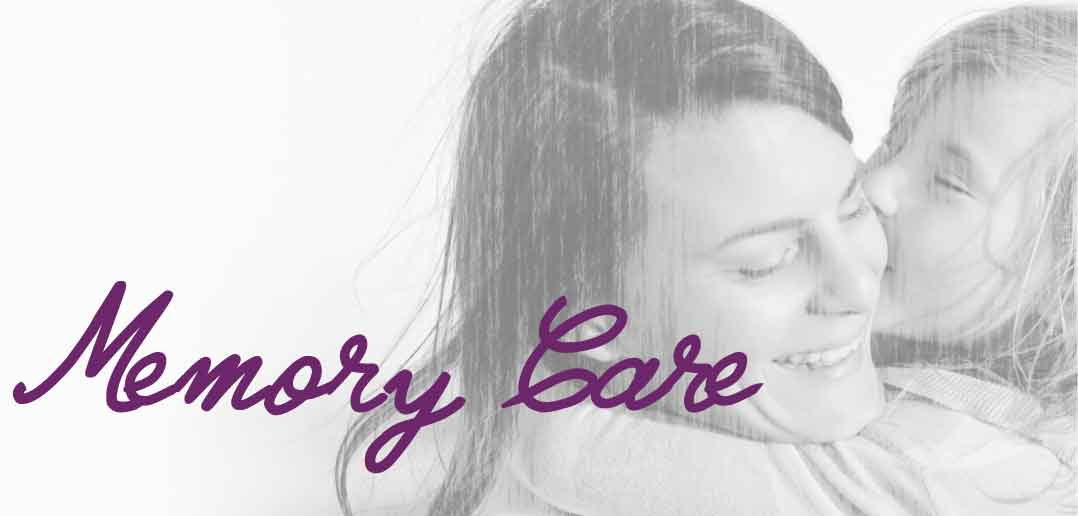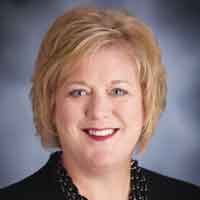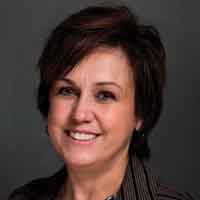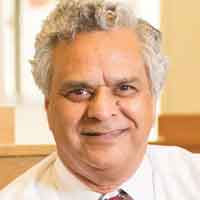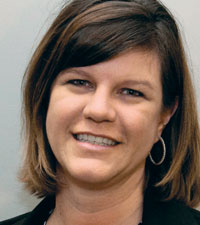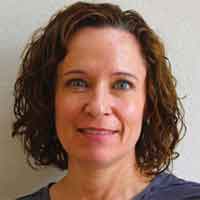When it comes to aging, what is normal and alternatively, what isn’t, has become a major focus in finding the appropriate level of care throughout one’s senior years. While memory loss will likely affect us all, there are more serious conditions that aren’t a normal part of aging – more specifically, Alzheimer’s disease and dementia.
As the best place to start is with a solid understanding of what we are all dealing with, both now and moving into the future, here are some facts from the Alzheimer’s Association which can also be found along with more information at www.alz.org:
• Dementia is a general term for a decline in mental ability severe enough to interfere with daily life.
• While symptoms of dementia can vary greatly, at least two of the following core mental functions must be significantly impaired to be considered dementia: Memory, Communication and Language, Ability to Focus and Pay Attention, Reasoning and Judgment, and Visual Perception.
• Alzheimer’s disease is the most common form of dementia.
• Alzheimer’s is not a normal part of aging, although the greatest known risk factor is increasing age, and the majority of people with Alzheimer’s are 65 and older. But Alzheimer’s is not just a disease of old age.
• Alzheimer’s worsens over time. Alzheimer’s is a progressive disease, whereas dementia symptoms gradually worsen over a number of years. In its early stages, memory loss is mild, but with late-stage Alzheimer’s, individuals lose the ability to carry on a conversation and respond to their environment. Alzheimer’s is the sixth leading cause of death in the United States. Those with Alzheimer’s live an average of eight years after their symptoms become noticeable to others, but survival can range from four to 20 years, depending on age and other health conditions.
• Alzheimer’s has no current cure, but treatments for symptoms are available and research continues. Today, there is a worldwide effort under way to find better ways to treat the disease, delay its onset, and prevent it from developing. Early diagnosis and intervention methods are improving dramatically, and treatment options and sources of support can improve quality of life.
To do their work, brain cells operate like tiny factories. They receive supplies, generate energy, construct equipment and get rid of waste. Cells also process and store information and communicate with other cells. Keeping everything running requires coordination as well as large amounts of fuel and oxygen.
Scientists believe Alzheimer’s disease prevents parts of a cell’s factory from running well. They are not sure where the trouble starts. But just like a real factory, backups and breakdowns in one system cause problems in other areas. As damage spreads, cells lose their ability to do their jobs and, eventually die, causing irreversible changes in the brain.
“Alzheimer’s disease does not just affect the elderly,” emphasizes Kathy Nannen, Director of The Arbors Memory Care, a Legacy Retirement Community. “Early onset can start as young as 40 to 50 years of age. It is important for all of us to educate ourselves about Alzheimer’s and other related dementias, as the likelihood that you or someone you know will be affected by dementia is very high.
When you’re loved one is diagnosed with a cognitive impairment, a familiar environment and routine can provide a feeling of comfort and security. If you have to make changes, it’s best to make as few as possible. Providing care in a familiar environment until the individual can no longer remain in that environment, then moving directly into a community or home with memory support programs, has proven to be less confusing than moving from their home to various levels of care and having different caregivers.
The Legacy Retirement Community offers The Arbors Memory Care Community, a fully secured, state of the art assisted living memory care community with elegant surroundings and compassionate care. Residents of The Arbors are supported and sustained so they may experience joy, safety, comfort and a meaningful life. Our approach to care giving is based on ‘The Best Friends Approach to Alzheimer’s Care’ developed by Virginia Bell, M.S.W. & David Troxell, M.P.H. Staff members get to know each person’s life story, preferences and interests in order to provide personalized care for each individual. Understanding the person and the disease process helps us to have compassion and patience, to give validation to concerns, and to support them through each stage of their disease. This is essential to preserving their dignity and providing comfort to them as well as to their families.”
When it comes to addressing memory care, no matter where you are at on the journey and what lies ahead for you or your loved one, it is comforting to know that there is help at all points along the road.
“It’s highly advantageous to be aware of the vast and varied resources that are available to assist with dementia and Alzheimer’s care,” emphasizes Amy Fish, Administrator of Lancaster Rehabilitation Center. “Just as important is accessing the most appropriate services at the most appropriate time, while anticipating future needs. There are services designed for in-home care, assisted living services, and skilled care. There are also a plethora of resources available to answer questions or provide individualized information for the family members.
The memory care neighborhood at Lancaster Rehabilitation is staffed 24 hours a day with professional nurses who are specially trained in Alzheimer’s and related disorders. Our memory care neighborhood is designed with cultural recreational educational and social activities specified to meet the individual needs of those we serve. The team at Lancaster Rehabilitation Center will help your loved one stay engaged in body, mind and spirit.
The team at Lancaster Rehabilitation recently received the Bronze Quality Award from the American Health Care Association, and we’re certainly proud of the exceptional care and services provided in our traditional nursing, rehabilitation, and memory support neighborhoods. Stop by to tour Lancaster Rehabilitation whenever you wish. We’re anxious to show off all that’s new on our campus!”
Fish also notes, “The support and services provided at Lancaster Rehabilitation do not end with our residents; we are just as dedicated to helping loved ones stay healthy and involved in the caregiving experience. The Alzheimer’s Support Group at Lancaster Rehabilitation meets the second Tuesday of every month at 4:00 p.m. Community and family members are welcome to join us anytime to learn more about the disease process, or to just take a break and enjoy the company of others.
I urge caregivers to seek and accept the support services available and/or offered. On too many occasions we’ve needed to provide care to the caregiver as they find themselves exhausted from the 24-hour care they are attempting to provide. The assistance that the team at Lancaster Rehabilitation Center provides allows for a spouse or adult children to continue to serve in a family member capacity and not as the primary caregiver.
Collectively as a team, it’s important for everyone involved to look ahead and plan for the future. Family members should be made aware of your directives as it relates to health care, so that if or when the time comes that decisions must be made on your behalf, they honor your wishes. Formal documents such as a Living Will or Advanced Directives help family members and health care providers care for you as you desire.”
In agreement, Jodi Freeman of Roper & Sons Funeral Care adds, “Among the many things that are important to plan before losing memory capabilities are end of life choices – from living arrangements to wishes for a funeral or memorial, and everything in between, such as Advance Directives (more commonly known as a living will) for managing your health care choices, and Do Not Resuscitate wishes. Making your own personal wishes known not only saves your family and other loved ones the burden having to make difficult decisions on your behalf, it allows them the freedom and peace of mind knowing that your wishes will be met to the best possible ability of everyone involved. If one waits too long to make these decisions, and mental capacity is in question, it opens a whole new array of problems and concerns for loved ones both emotionally and legally.
Nearly daily, we hear from families that a loved one having pre-planned and pre-paid their funeral services is the ‘best gift they ever received.’ Planning for final wishes while we still have our memory capabilities is very important because we are able to express our wishes, and be reassured that our loved ones understand the reasons behind our choices. This prevents arguments amongst family members, and in the instance of estate planning, assures that assets are distributed fairly and in the way that the individual wishes, without question of mental capacity or decision making ability. In my opinion, final wishes plans are best made by the individual, with the family’s input when possible.
We are very lucky in Lincoln to have a large number of resources available for planning, support, and options for those who are affected by dementia and Alzheimer’s disease. There are support groups for those affected as well as their caregivers; medical and legal advice and support from very caring individuals who are experts in their fields; support from a variety of professional and community based groups who provide information, education, resources and assistance in a variety of forms. One of the most important things you can do is ask for help – even when it might be one of the most difficult!”
Eric Haider, CEO of The Waterford at Wilderness Hills Memory Care, also offers some helpful information and targeted resources:
“Everyone with a brain is unfortunately at risk for Alzheimer’s disease, and here are just a few key facts:
• In 2015, an estimated 5.3 million Americans of all ages have Alzheimer’s disease
• Almost two-thirds of Americans with Alzheimer’s are women.
• Every 67 seconds someone in the United States develops Alzheimer’s disease.
• In 2014, family and friends of people with Alzheimer’s and other dementias provided an estimated 17.9 billion hours of unpaid care.
• Over half of primary caregivers of people with dementia are those who are taking care of their parents.
• Approximately two-thirds of caregivers are women.
• Alzheimer’s takes a devastating toll on caregivers. Nearly 60% of Alzheimer’s and dementia caregivers rate the emotional stress of caregiving as high or very high; about 40% suffer from depression due to the physical and emotional toll of caregiving.
Remember, you are not alone. Take the initiative to get help and explore your options. Don’t do it by yourself; caring for a loved one by yourself does not just put stress on your life but it will also leave you exhausted. In addition to the support of medical professionals and care providers, it can be incredibly helpful to seek the support of family, friends and caregivers going through similar experiences.
Here are a few suggestions as far as help for you and your loved ones:
Free Support Service: Whenever facing difficult times, having a good support network you can turn to for advice and encouragement may help you feel socially connected and give you a sense of belonging and purpose. Connecting with others like you may help put your own experiences living with the disease in perspective, and provide you with the support and encouragement necessary to move beyond the diagnosis. Educational programs, speakers, and support from other people is available to everyone on first Tuesday of every month at 6:30 P.M. at The Waterford at Wilderness Hills Memory Care, 8939 Keystone Dr. Everyone is invited.
Adult Day Care: Every so often a caregiver needs a break and time for herself/himself to get away and let someone else take care of your loved one. Waterford Adult Day Service comes in very handy at those times – from a few hours to all-day service.
Respite Care: Do you need a vacation or do you need to go out of town for a few days but worry about who will take care of your loved one? The Waterford’s Respite Program will help you.
Facing stigma is often a primary concern of people living with Alzheimer’s disease and their care partners. Those with the disease report being misunderstood because of the many myths and misconceptions others have about the disease.
Five tips to overcome Alzheimer’s stigma:
• Be open and direct.
• Communicate the facts.
• Don’t be discouraged.
• Be a part of the solution.
• Seek support and stay connected.
You can also make plans to prevent this before you lose your memory. Some tips to develop your future care team:
• Identify which friends, family and/or facilities may be willing to help you and are right for you.
• Discuss with them whether they can provide the help you may need. • Be specific. State clearly what help is needed or may be needed in the future.
• When selecting a care facility ask questions and select the one who is willing to listen, give you choices and fit for your needs.
If you have any questions or would like to find out more about the services and resources offered at The Waterford, please feel free to contact me at (402) 890-0972.”
Liz Seitz, Administrator, GracePointe Assisted Living & Memory Care Suites, further emphasizes that if you are affected by dementia or Alzheimer’s disease, you are certainly not alone. “Alzheimer’s or other memory loss-related diagnoses can be very scary. It’s important to reach out to your medical provider, a spiritual support person or a trusted memory care professional to help you along this journey. Many times they can help you with options for care that you may not be aware of. Lincoln offers a large number of options for home care support, assisted living or long term care. Calling Tabitha is a great place to start when you need answers about memory care resources, as we offer the state’s first and most complete continuum of Elder Care services, available in 28 southeast Nebraska counties.
Tabitha offers a comprehensive line of Elder Care services that promote the dignity, independence and well-being of older adults. We understand that that each individual with dementia or Alzheimer’s progresses differently, and we are dedicated to meeting that person and family where they are in their journey. Tabitha offers a unique and extraordinary Adult Day program that provides a safe, nurturing environment for adults who need extra care during the day when other family may not be available. We have medical and non-medical home care options that can provide assistance and services in a client’s home, wherever they call home. GracePointe Assisted Living & Memory Care Suites provides a beautiful community where individuals needing memory support can live and be cared for in a safe, home-like setting with specially trained caregivers available 24/7.”
Specifically regarding caregivers, she further advises, “Caring for someone with memory loss can become all-consuming. It is crucial that you attend to your own physical and emotional well-being, not only for you but also for the person (or people) who depends on you. It is so important that family members and caregivers get the support they need. Talking with others experiencing a similar situation can help you feel less isolated, give you helpful tips, and offer a safe place to discuss feelings and concerns. I recommend that families reach out to their local Alzheimer’s Association chapter for a list of educational meetings and support groups. Often these groups have online, phone or in-person options to fit your needs.
As your loved ones age, I suggest having a family meeting before a crisis event happens. These meetings are a time when everyone can discuss their views and establish a plan for the future. This is also a good time to have an honest discussion about finances and assigning power of attorney (POA) duties. These subjects can sometimes be difficult, so be willing and prepared to ask for help from an outside facilitator like a geriatric care manager. It’s important to think about current health conditions and also to plan for future needs. Asking questions about goals and what is most important to your loved one before there is significant memory loss is important and will help you make decisions as their care needs increase. If the best option is to move into a care community, be sure to involve your loved one as much as possible. Being part of the process will decrease anxiety about the move and increase the likelihood of a successful transition.”
“When a family is faced with taking care of someone with memory issues the caregiving journey can be long,” adds Michaela Williams of Care Consultants for the Aging. “Being aware of what is available will help when you are faced with the reality of needing more care to take care of your loved one. Care Consultants produces the ElderCare Resource Handbook that will list all the senior services available in the Omaha and Lincoln metro areas. We have a section that is dedicated for Assisted Living Facilities that specialize in Alzheimer’s/Dementia care, and we will indicate what Skilled Nursing and Rehabilitation Centers have a dementia unit. The handbook can be viewed for free on-line at www.careconsultants.com and it is available in print.
There are many options for help when you need more care for your loved one. Discovering what the government offers, what insurances and financial options your loved one has and getting your legal documents in place will help when needing to make choices for your loved one. The Alzheimer’s Association offers many support groups and services to aid those who are caring for those with memory problems. Knowing about the different types of Alzheimer’s and dementia can help get the caregivers on board with what cares may be needed. Once you know what resources you have then you can line up the necessary services.
Many can stay at home throughout their caregiving journey but sometimes moving to a care center is the best choice too; each set of circumstances is different. Care Consultants is a home care registry that screens and places caregivers with families needing help. Caregivers can assist with tasks such as bathing, dressing, meal prep, transportation and light housekeeping. Caregivers are insured and bonded and can work 1-24 hours a day. We offer both medical and non-medical cares for those who need assistance with maintaining an independent lifestyle.”
Christy Sueverkruepp of Guardian Angels Homecare also touches on the serious impact that dementia can have on caregivers. “Family caregivers report having a chronic health condition at more than twice the rate of non-caregivers (HHS, Informal Caregiving: Compassion in Action). Furthermore, the stress of caring for persons with dementia has been shown to impact a person’s immune system for up to three years after the caregiving ends (Drs. Glaser & Glaser, “Chronic Stress and Age-Related Increases in the Proinflamatory Cytokine IL-6”). By providing practical support and information we aim to reduce the demands that are placed upon a family caregiver significantly.
Home care is a wonderful resource in the early stages as we focus on alleviating the stress on the individual as well as the family. We can arrange visits to check in on the client for their safety and well-being. By providing good nutrition, ensuring compliance with prescribed medications, and helping to maintain social contact, those with dementia are able to remain independent longer. With so many possibilities ranging from home care to a visiting nurse, assisted living, skilled nursing and hospice care, reviewing all of the available options regularly is key as each of these can have a role to play in the support that your family needs.
Lincoln also has wonderful support organizations for individuals with a diagnosis of Alzheimer’s, Parkinson’s or stroke and also caregiver support groups. We have some of these listed on our resource page at www.guardian-angels.us. Our team at Guardian Angels Homecare can help connect you with others in the community who understand the challenges you are facing. Call us at (402) 474-4000 for more information and to speak with our dementia practitioner.”
As dementia or Alzheimer’s disease progresses, the best fit for care and plan moving forward will likely be subject to change. As previously mentioned, hospice care is another key piece that can be incorporated into your existing network of resources when the time comes.
“Hospice care can be of great support to persons in the final stages of dementia and their support system,” explains Amy Hemje, LCSW, HoriSun Hospice Social Worker. “Hospice is a supportive service, committed to pain and symptom management for individuals with a life limiting illness. The hospice focus is to treat the whole person (body, mind and spirit) and not just the disease. Hospice allows the patient dignity, comfort and support when aggressive treatment is no longer desired or appropriate. Hospice supports the entire caregiving unit.
Hospice services are available to individuals who have been diagnosed with a life-limiting illness and have a desire to receive comfort measures rather than aggressive therapies. Six months prognosis is a guideline – persons must meet the Local Coverage Determination Policy and Guidelines to be eligible for hospice.
The hospice team then makes visits based on the clinical and psychosocial needs of the person and their support system. An interdisciplinary team consists of physician, professional nurses, hospice aide, social worker, spiritual care, bereavement services, volunteers, physical, speech and occupational therapies, registered dietician, massage therapy, pet therapy and other healthcare professionals as needed for comfort.
Hospice supports the patient and family as well as health care professionals with information and resources to make well informed decisions, medical equipment, supplies and medications related to the life-limiting illness, pain and symptom management, support and counseling to assist with coping the issues related to a life-limiting illness and loss, volunteers to provide companionship, intermittent family relief, increased patient socialization and bereavement support.
Hospice staff can consult with patients, family, and/or health care providers to provide additional information and determine appropriateness for hospice services. Medicare, Medicaid and most insurance carriers fully reimburse hospice services. Services can be provided in private homes, extended care facilities, assisted living facilities, skilled nursing facilities.”
Rhonda Saunders, Director of Marketing at Hospice Community Care of Nebraska, adds, “As a hospice provider, Hospice Community Care reaches out to people with all types of life limiting illnesses. Due to the fact that dementia and Alzheimer’s are terminal diseases, we see this fairly often. Hospice care is about using a team oriented approach. At Hospice Community Care, our team is made up of a Medical Director, Nurse Practitioner, Nurses, Home Health Aides/CNA’s, Social Workers, Chaplains, Nutritionist and Volunteers. All of which are trained and skilled at meeting the specialized needs of the hospice patient with dementia.
An individual with advanced dementia cannot report their symptoms. As a result these symptoms are often left untreated, leaving them vulnerable to pain, difficulty breathing and various other conditions. This is where hospice can help! Hospice is a covered benefit under Medicare Part A and under many private insurance plans. A person is eligible for hospice care when a physician determines that they have less than six months to live if the disease continues to follow its natural course of progression. For a person with dementia to qualify for hospice care, they must score a seven or above on the Functional Assessment Staging Tool, which means they: cannot dress themselves; cannot walk without assistance; cannot bathe properly without assistance; are incontinent of urine and stool; and are unable to speak or have meaningful communication.
Other medical complications, such as multiple hospitalizations, recurrent infections (i.e. urinary tract infections, blood infections), aspiration pneumonia (resulting from choking on food or fluids), pressure sores on the skin, and refusal to eat help support a life expectancy of six months or less.
Hospice is a key provider of palliative care for people who are near end of life. Research has shown that terminally ill patients and their families benefit from hospice by experiencing better pain control, fewer terminal hospitalizations and invasive treatments, and greater overall satisfaction with end-of-life care.”
She further explains, “Hospice care is not just for the person who’s facing a life limiting illness, but it includes their family as well. At Hospice Community Care we embrace everyone that is a part of our patient’s support system. The benefits to our families are:
• Respite care so families can take a break from caregiving.
• Volunteers to assist with errands, lend a listening ear, or give a hug. Someone to stay with the patient while the caregiver goes to lunch, shopping, etc.
• Counseling, which includes spiritual and emotional, as well as advise on practical matters related to caregiving.
• Bereavement support to help the family through their period of mourning.
• And most of all, support and assistance from our caring team of professionals who consider our patients and the family to be the most important members of our team!
As others have mentioned, it’s important to remember that you are not alone. Dealing with facing the loss of a loved one is never easy. Our Hospice Community Care team is available at all times to provide physical, spiritual and emotional support throughout this journey. If you would like more information on hospice, dementia or other related topics and/or would like a speaker for your organization or group, please contact me anytime at (402) 405-1797.”
Unfortunate as it is, today the varied medical conditions that have the potential to affect our memory function are much more prevalent than ever before and as such, are to be taken very seriously. With the brightest minds in medical research and health care leading the way, the more we learn the better equipped we are to make the best decisions possible until we find a cure. With dementia and Alzheimer’s disease affecting so many, there are currently a wealth of resources that are available to provide assistance, guidance and support. Reaching out is the first step, and a tremendously important one at that.

